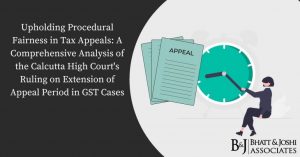Order XXII, Rule 4 of CPC: An Overview and its Application (Part 2)
Understanding Order 1, Rule 10 of CPC and the Doctrine of Dominus Litus

For Part 1 click here
Order XXII, Rule 4 of CPC: An Overview
Order XXII, Rule 4 of the Civil Procedure Code (CPC) is a procedural provision that deals with the scenario where a defendant dies during the pendency of a lawsuit. The rule stipulates that if a defendant dies and the right to sue does not survive solely against the remaining defendant(s), or if the sole surviving defendant dies and the right to sue survives, the court has the power to make the legal representatives of the deceased defendant a party and continue with the suit. To invoke this rule, the following conditions must be met:
- The death of the defendant
- The survival of the right to sue
- The right to sue not surviving against the remaining defendant(s) alone[^1^].
Application of Order XXII, Rule 4 of CPC
The application for bringing the legal heirs of a deceased defendant on record under Order XXII Rule 4 must be in writing, in the language of the court, and supported by an affidavit. The non-filing of an affidavit is a curable irregularity. The application should include the names of the legal representatives of the deceased defendant. Once the application is entertained, the court must issue a notice to the proposed legal heirs for a hearing, and then decide whether to grant or reject the application[^2^].
It is important to note that if such an application is filed wherein a suit has abated, the same can also be treated as an application for setting aside of abatement. The procedural provisions of Order XXII CPC have been held to be procedural in nature and to be construed liberally to advance substantial justice[^3^].
Case Study: Hakim Din Vs Akbar Noor & Ors.
Background of the Case
In the case of Hakim Din Vs Akbar Noor & Ors[^4^], the Jammu and Kashmir High Court was called upon to adjudicate on the application of Order 1, Rule 10(2) and Order XXII, Rule 4 of the CPC. The petitioner had filed a suit for declaration and possession against three defendants, including Mohd. Rafiq (defendant 1). As Rafiq died during the suit pendency, the petitioner filed an application to include the legal heirs of the deceased defendant, stating that as per the Muslim law of inheritance, succession had opened up to the legal heirs. The defendants opposed the application citing delay.
Court’s Decision
The trial court dismissed the petitioner’s application, stating that the suit had abated against the deceased defendant, Mohd. Rafiq, under Order XXII, Rule 4 (3) of the CPC. The High Court, however, set aside the trial court’s order, holding that the provisions of Order 1, Rule 10(2) stand excluded where a case is covered by Order XXII, Rule 4, based on the principle “general words do not derogate special provisions”. The court also emphasized the obligation cast upon an advocate of the deceased party to intimate the factum of death of the deceased party to the court.
Citation
[^1^]: Civil Procedure Code, 1908
[^2^]: Hakim Din Vs Akbar Noor & Ors, 2023 LiveLaw (JKL) 149
[^3^]: Civil Procedure Code, 1908
[^4^]: Hakim Din Vs Akbar Noor & Ors, 2023 LiveLaw (JKL) 149
# Citations with Outbound Links
- [Civil Procedure Code, 1908](https://indiankanoon.org/doc/1569253/)
- [Hakim Din Vs Akbar Noor & Ors](https://www.livelaw.in/top-stories/jk-high-court-order-1-rule-10-2-cpc-order-xxii-rule-4-cpc-182574) The case citation is 2023 LiveLaw (JKL) 149.









